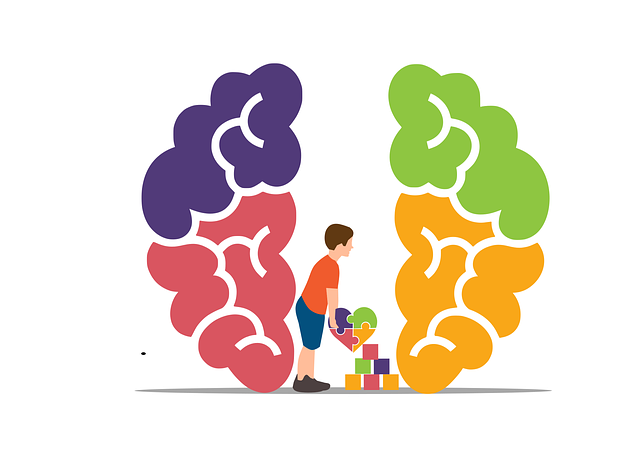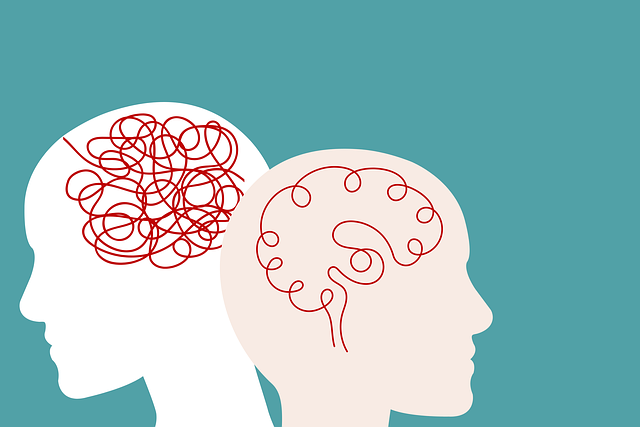Anxiety among adolescents is a growing concern exacerbated by self-awareness, social pressures, and academic demands. Effective support includes therapy for adolescent teens and grief counseling, which teach coping mechanisms, identify triggers, and establish self-care routines. Public awareness campaigns normalizing mental health conversations empower teens to seek help, while compassion cultivation practices foster empathy and understanding. Key strategies also include burnout prevention for counselors and advocating for improved access to quality grief counseling services. Evidence-based approaches like Cognitive Behavioral Therapy (CBT) and mindfulness exercises significantly reduce anxiety, enhanced by mental wellness podcast series offering tailored guidance.
Anxiety among adolescent teens is a prevalent concern, often manifesting as overwhelming worry and fear. This article explores comprehensive strategies to manage anxiety effectively. We delve into the root causes, specifically focusing on understanding the unique challenges faced by teens. Key components include the role of grief counseling in mitigating anxiety, effective therapy approaches tailored for adolescents, and practical daily management techniques. By combining these evidence-based methods, parents and professionals can empower teens to overcome anxiety and foster resilience.
- Understanding Anxiety in Adolescent Teens
- The Role of Grief Counseling in Managing Anxiety
- Effective Therapy Approaches for Teen Anxiety
- Practical Strategies for Daily Anxiety Management
Understanding Anxiety in Adolescent Teens

Anxiety among adolescent teens is a growing concern, with many facing unprecedented levels of stress and pressure. This period of life is often marked by intense self-awareness, social pressures, and academic demands, which can significantly contribute to anxiety disorders. Recognizing the unique challenges faced by teenagers is crucial in providing effective support.
Therapy plays a pivotal role in helping adolescent teens manage their anxiety. Techniques such as grief counseling have proven beneficial in addressing underlying issues. Through therapy, teens learn coping mechanisms, gain insights into their triggers, and develop self-care routines for better mental health. Public awareness campaigns focused on normalizing conversations around mental health can also foster an environment where teens feel empowered to seek help. Additionally, compassion cultivation practices encourage empathy and understanding, which can significantly contribute to reducing anxiety and promoting overall well-being.
The Role of Grief Counseling in Managing Anxiety

Grief counseling plays a significant role in managing anxiety, especially for adolescent teens grappling with complex emotions stemming from loss or trauma. This therapeutic approach is designed to help individuals process and come to terms with their grief, thereby reducing anxiety symptoms. Through open discussions guided by mental health professionals, teens can explore and express their feelings about the death of a loved one or other traumatic events, fostering a sense of understanding and resilience.
Incorporating cultural sensitivity in mental healthcare practice is crucial when offering grief counseling. Different cultures have unique ways of dealing with grief, and therapists must be equipped to navigate these nuances to provide effective support. Additionally, burnout prevention strategies are essential for counselors themselves, ensuring they remain emotionally available and competent in assisting clients effectively. Mental health policy analysis and advocacy also contribute to improving access to quality grief counseling services, ultimately benefiting adolescent teens seeking anxiety management techniques.
Effective Therapy Approaches for Teen Anxiety

Anxiety among adolescents is a growing concern, but there are effective therapy approaches tailored to this age group. Cognitive Behavioral Therapy (CBT) has proven successful in treating teen anxiety by helping them identify and change negative thought patterns and behaviors. This approach encourages teens to challenge their anxious thoughts, a process that fosters mental wellness journaling exercises and coping skills development.
Additionally, grief counseling plays a significant role in addressing underlying causes of anxiety among teens. Many adolescents struggle with processing difficult emotions, such as loss or trauma, which can contribute to ongoing anxiety. Through grief counseling, these young individuals learn healthy ways to cope with their feelings, thereby enhancing their overall mental wellness. The Mental Wellness Podcast Series Production offers valuable resources and guidance for both teens and parents seeking evidence-based strategies to manage anxiety effectively.
Practical Strategies for Daily Anxiety Management

Managing anxiety daily is a skill that can be cultivated through practical strategies tailored to individual needs. For adolescent teens grappling with anxiety, therapy and grief counseling have proven effective in addressing underlying causes and providing coping mechanisms. Incorporating mindfulness exercises into daily routines can significantly enhance mental wellness; techniques like deep breathing, meditation, and progressive muscle relaxation help to calm the mind and body.
Additionally, engaging in physical activity releases endorphins, which act as natural anxiety relievers. Whether it’s a walk in nature or joining a sports team, finding an outlet for energy and stress is vital. In today’s digital age, leveraging mental wellness podcast series production can offer valuable insights and support. Moreover, risk management planning for mental health professionals ensures they are equipped to handle their own well-being, enabling them to better assist clients.
Anxiety management is a vital aspect of adolescent well-being, and understanding its various facets is crucial. From recognizing symptoms to implementing practical strategies, this article has explored effective ways to tackle teen anxiety. Specific therapy approaches, such as grief counseling, have proven beneficial in addressing the root causes of anxiety. By combining professional support with daily management techniques, teens can navigate their anxiety, fostering a healthier and more balanced lifestyle. Remember, seeking help is a sign of strength, and with the right tools, adolescence can be a time for growth and resilience.








